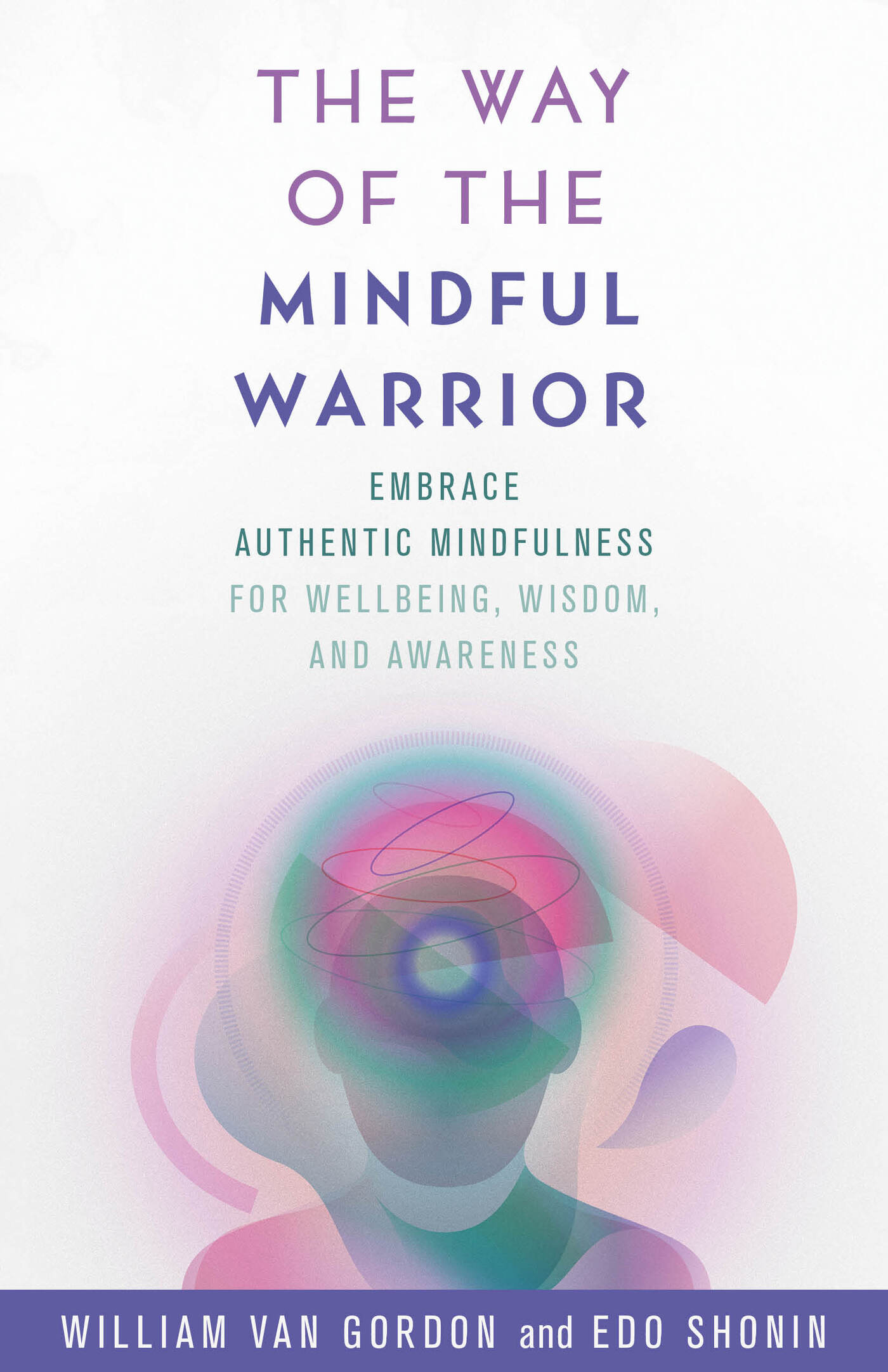The Way of the Mindful Warrior
The Way of the Mindful Warrior
Embrace Authentic Mindfulness for Wellbeing, Wisdom, and Awareness
William Van Gordon
and Edo Shonin
ROWMAN & LITTLEFIELD
Lanham Boulder New York London
Published by Rowman & Littlefield
An imprint of The Rowman & Littlefield Publishing Group, Inc.
4501 Forbes Boulevard, Suite 200, Lanham, Maryland 20706
www.rowman.com
6 Tinworth Street, London SE11 5AL, United Kingdom
Copyright 2020 by William Van Gordon and Edo Shonin
All rights reserved. No part of this book may be reproduced in any form or by any electronic or mechanical means, including information storage and retrieval systems, without written permission from the publisher, except by a reviewer who may quote passages in a review.
British Library Cataloguing in Publication Information Available
Library of Congress Cataloging-in-Publication Data Available
ISBN 978-1-5381-4671-2 (cloth : alk. paper)
ISBN 978-1-5381-4672-9 (electronic)
 TM The paper used in this publication meets the minimum requirements of American National Standard for Information Sciences Permanence of Paper for Printed Library Materials, ANSI/NISO Z39.48-1992.
TM The paper used in this publication meets the minimum requirements of American National Standard for Information Sciences Permanence of Paper for Printed Library Materials, ANSI/NISO Z39.48-1992.
To my spiritual forefathermay your blessings
continue to flow
W.V.G.
To the indestructible path of the Mindful Warrior, that reveals itself to all genuine seekers of the way
E.S.
When he knew that the householder Uplis mind was ready, receptive, free from hindrances, elated and confident, he expounded to him the teaching special to the Buddhas: suffering, its origin, its cessation and the path. Just as a clean cloth with all marks removed would take dye evenly, so too, while the householder Upli sat there, the spotless immaculate vision of the Dhamma arose in him: All that is subject to arising is subject to cessation. Then the householder Upli saw the Dhamma, fathomed the Dhamma; he crossed beyond doubt, did away with perplexity, gained intrepidity, and became independent of others in the Teachers dispensation. Then he said to the Blessed One: Now, venerable sir, we must go. We are busy and have much to do.
The Upli Sutta, translated by anamoli
and Bodhi
Acknowledgments
We would like to express gratitude for the various people and conditions that have made possible the writing and publication of this book. First, we would like to thank the numerous favorable and adverse situations that we have encountered during our lives. These situations have been our teachers and have allowed us to grow in patience, humility, and spiritual awareness. We would also like to thank the Buddhist and non-Buddhist teachers who have offered, and continue to offer, their support and teachings. Likewise, we would like to thank our students, friends, and family members for their patience and understanding during the times we were engaged with writing, and for their helpful feedback on numerous chapters of this book. Finally, we would like to acknowledge the help and support provided by our agent Giles Anderson of Anderson Literary Agency, as well as by the team at Rowman & Littlefield.
Introduction
Are you fully aware that you are breathing? Are you fully aware that you are alive? Are you fully present for each and every moment of your life? Or are you continuously pulled from one situation to the next, exhausted and unable to sit in stillness with yourself?
We experience every moment of our lives for the first and last time. A situation never repeats itself. It might not seem this way but the truth is that every instant of our lives is completely fresh and original. We may think we are the same person that we were last year, or we may even think that things have not changed since yesterday. But they most certainly have. Everything is in a constant state of flux. Everything changes all of the time. Each breath we take and everything we see, hear, smell, taste, and touch is 100 percent unique. Absolutely nothing stands still.
Unfortunately, although most people understand that all things are impermanent, they tend to get stuck in certain ways of seeing things and in certain ways of being. Indeed, people easily fall into the trap of believing their situation is fixed and unworkable, like a slab of solid ice that is totally unyielding. Consequently, instead of being awake to the dance of impermanencethe natural and transient state of everythingwe develop a limited view of ourselves and we start to take things for granted. We tend to forget that we are only on this earth for a finite period of time, and we become blind to the wonders of life that are continuously happening all around us.
In fact, if we are being truthful with ourselves, then we probably have to admit that many people, particularly in todays fast-paced consumer society, have become experts at making soap operas out of their lives. The problem with living a soap opera is that the mind starts to close in on itself, and we become obsessed with our and others affairs. Living a soap opera means that rather than being in the drivers seat, we are controlled almost entirely by our thoughts and emotions as well as by the thoughts and emotions of others. We get lost in the situation and this stops us from stepping back and seeing the bigger picture. If we get stuck living a soap opera, we become increasingly lost as each day goes by and our life becomes less meaningful. At first, there is a voice inside us that tells us we are missing the point and that we are starving and imprisoning that part of us that wants to be truly free. However, the more time we spend living a soap opera, the quieter and quieter the voice becomes. Eventually, we stop hearing it altogether and we begin to feel lost and exhausted, like a horse that has been captured from the wild and is worked to the breaking point.
In the midst of soap opera living, the mind is never truly satisfied. It constantly searches for temporary relief and looks for quick-fix solutions that will end its suffering. Examples of such quick-fix strategies might be diving head-first into the latest health trend, going on shopping sprees, jumping into and out of relationships, going on a spiritual trip, or turning to alcohol or drugs. However, rather than acting as a permanent solution to our dissatisfaction, these behaviors generally tend to keep us distracted in order to avoid having to confront our problems at their source.
The truth is, if we really want to break free of soap opera living, if we really want to take back control of our lives and find lasting peace and happiness, then we have to start with our current situation. We have to take ourselves exactly as we are. We have to avoid the trap of kidding ourselves that there is a quick-fix to our predicament. We have to accept that lasting change is going to take time, joyful perseverance, and warrior-like courage. As soon as we embrace these principles and accept our dilemma for what it is, our situation immediately becomes lighter. We are no longer pulling the wool over our own eyes and, at long last, we are being completely truthful with ourselves. Now we can breathe a short sigh of relief.
Soap opera living tends to make us forget who we really are and what is important in life. Therefore, if we are going to accept and work with our current situation, the first thing we must do is start to become aware of exactly who we are. Most people have difficulty admitting that they dont really know themselves, and this is why taking responsibility for our own happiness takes courage. However, if we can let go of the ego and be truthful with ourselves about this matter, then that slab of solid ice that we referred to earlier begins to melt a littleour situation no longer feels quite so cold or unworkable.
Next page
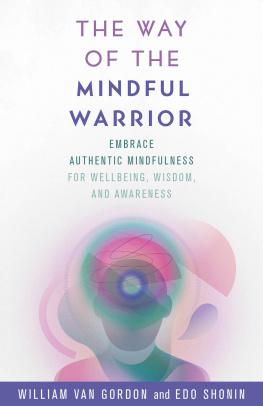
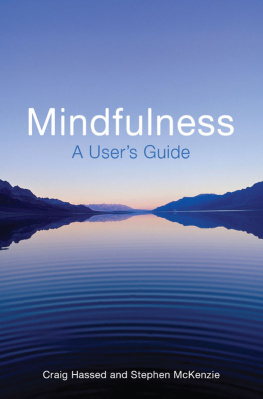

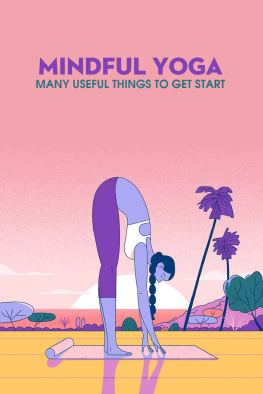
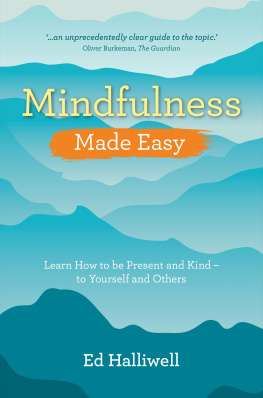
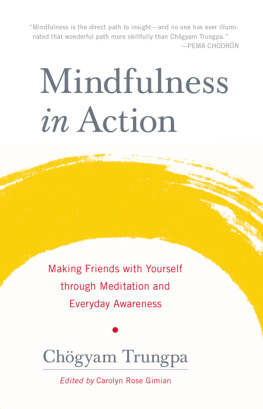
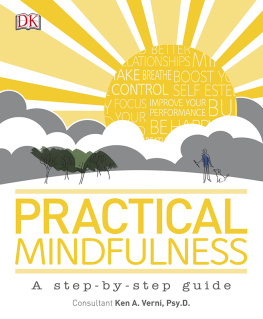
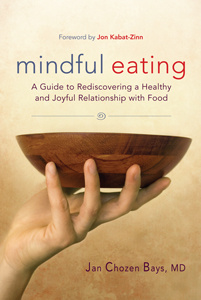
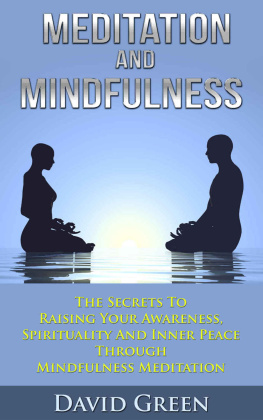
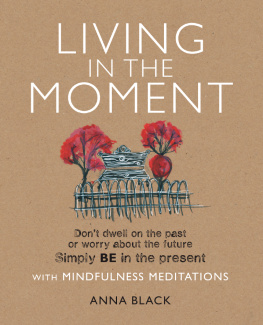
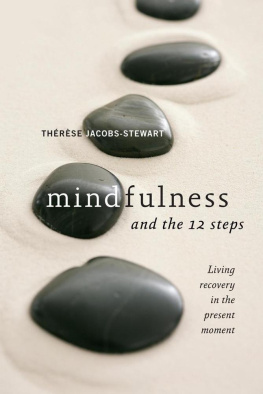
 TM The paper used in this publication meets the minimum requirements of American National Standard for Information Sciences Permanence of Paper for Printed Library Materials, ANSI/NISO Z39.48-1992.
TM The paper used in this publication meets the minimum requirements of American National Standard for Information Sciences Permanence of Paper for Printed Library Materials, ANSI/NISO Z39.48-1992.